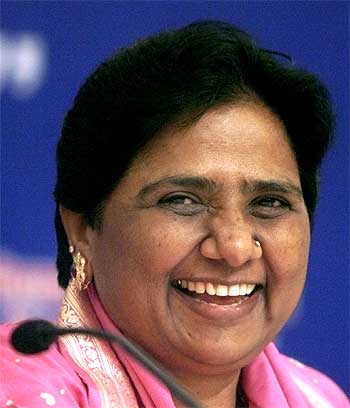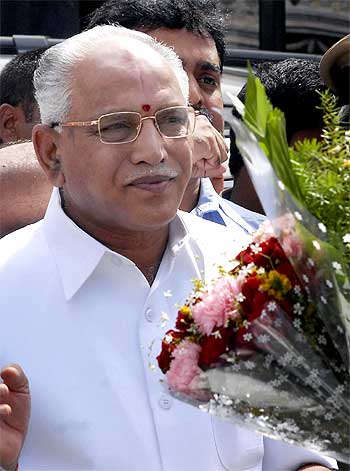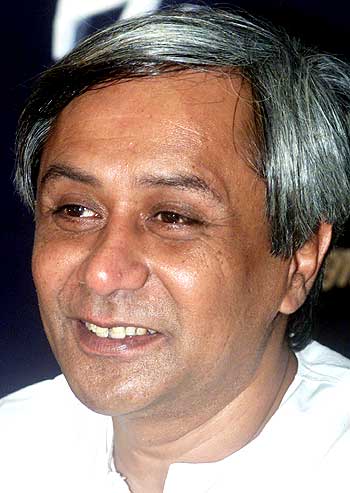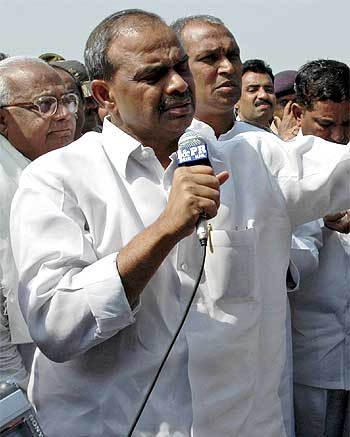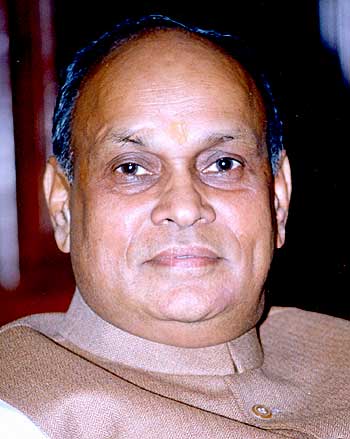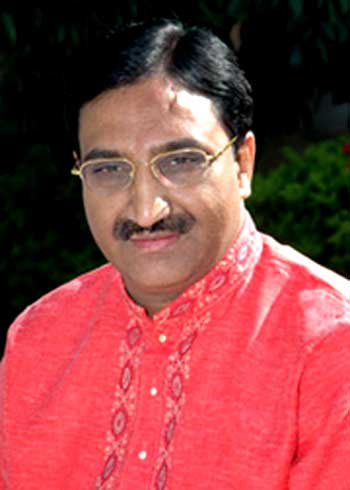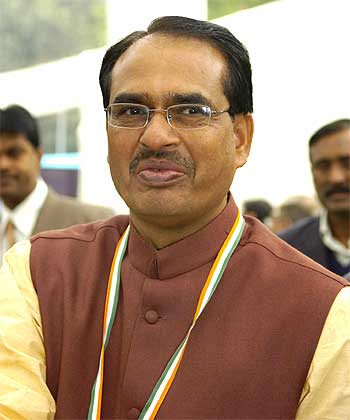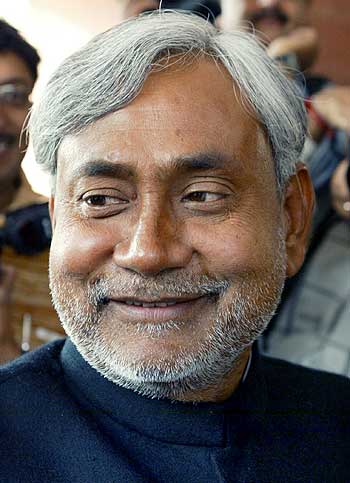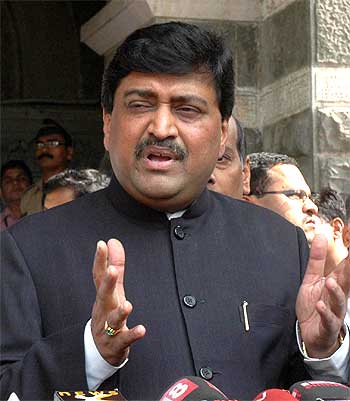 | « Back to article | Print this article |
What CMs seek from Dr Singh
The Centre on Monday observed that the gravity of the threat of terrorism was undiminished and that the nation could not afford to lower its guard. Chief ministers of various states have come up with their seperate wish-lists. Here is a look at what they are asking for.
Uttar Pradesh Chief Minister Mayawati claimed that the Centre was contemplating direct deployment of its forces in states facing long-term law and order problems and termed it as a 'matter of concern'.
"It seems the Centre is considering a right to directly deploy security forces in states. Similarly, the Centre is considering direct intervention in states which face long-term problem of law and order," she said. Mayawati said the Constitution gave vast rights to the Centre in relation to state governments. "But if the Centre gets the right to deploy security forces directly,
it will be able to interfere in state matters without responsibility," she said.
Mayawati said, "The Centre should consider a special package for Naxal-hit areas for their all round development". She also demanded more seats for UP police personnel in central training agencies to deal with situations like terror attacks. "Specialised training for commandos, bomb squads and intelligencepersonnel are not available in states and we have to depend on the central government," she added.
On the drought-like situation in the state, she said the request for a Rs 7.789-crore package forwarded to the Agriculture Ministry should be approved at the earliest. Maywati also said the Centre has remained undecided on the Rs 3.866-crore package for the development of Bundelkhand region and demanded an early decision.
Text: PTI
Yeddyurappa wants a Commando Training Centre
Karnataka sought Centre's assistance for establishing a full-fledged Commando Training Centre in the state as also meeting the expenditure on police personnel involved in coastal security and anti-terrorist cells.
Chief Minister B S Yeddyurappa said his government was contemplating establishing a Commando Training Centre to cater to the training needs of coastal security police, anti-naxal force, anti-terrorist cell and Quick Reaction Teams.
He said the Centre must consider bearing or at least sharing the burden of expenditure on police personnel for coastal security and anti-terrorist cells and the Modernisation of Police Force scheme needs should continue at least for five more years.
Thanking the Centre for agreeing to deploy Rapid Action Force whenever they are sought, the chief minister said it would be of great help if one Company of RAF was stationed in Bangalore itself.
He said his government had already requested for three Indian Reserve Battalions to the state, one ITBP battalion at Belgaum, 18 coastal check-posts and 33 outposts on the Karnataka coast, two helicopters and increase in the IPS cadre strength by 30 officers.
Naveen Patnaik wants NSG training for police
Orissa Chief Minister Naveen Patnaik asked the Centre to provide at least 10 trainers of the elite National Security Guard to train the state police personnel in tackling left wing extremists.
"The police has to undergo specialised commando training to tackle urban terrorism. I would request the Union Home Minister to make available at least 100 personnel, including 10 trainers of the NSG to our state," he said.
Statistics show that in the first half of 2009, there has been a 47 per cent increase in the number of naxal-related incidents in the country as a whole and 57 per cent in the number of deaths of security personnel.
Patnaik also said the announcement of 15 per cent incentive to the personnel of all ranks in special branch and 30 per cent incentive to those working in the special intelligence for dealing with naxal intelligence has resulted positive response among police personnel in the Biju Janata Dal-ruled state.
"Since January 2009, we have added more than 5,000 new recruits to the Police force. Besides more than 2700 vacancies have been filled up by way of promotions. We are now targeting to recruit another 10,000 more by the end of this year, he said.
Reddy seeks funds to boost infrastructure in the interiors
Claiming that Andhra Pradesh has been successful in reducing Maoist aggression, Chief Minister Y S Rajasekhara Reddy sought Centre's help in creating proper infrastructure in interior areas for developmental work in places that were earlier affected.
Identifying Left-wing extremism and LeT-related terrorism as major threats to security, he said the Government has "very effectively" handled both the issues.
"The strategy of Andhra Pradesh has been successful in reducing Maoist aggression in spite of the fact that they are quite active across the state's borders," Reddy said.
On LeT-related terrorism, he said a lot of capacity building is required as investigators of terrorist crimes must have knowledge of trafficking in arms and ammunition, drug trafficking, fake currency and hawala operations.
"Hence, these officers require training from IB and also from the Serious Organised Crime Agency of the UK or Homeland Security Agency of the US," Reddy said, adding operational intelligence from IB and state intelligence departments have to be shared on real time basis.
Noting that the 'best weapon to overcome militancy is to win the hearts of people by development', he listed initiatives of his
government in areas earlier infested with naxal menace and also steps taken to deal with terrorism.
He also said six Marine Police stations have been set up in the first phase of the Coastal Security Scheme and lamented that the infrastructure is "meagre". He said the personnel were yet to be equipped with speedboats and other gadgets.
Dhumal seeks enhanced funds for police modernisation
Himachal Pradesh sought enhanced funds from the Centre for police modernisation and strengthening its intelligence wing to tackle rising crime.
"Himachal Pradesh had been historically a very peaceful state...there has never been any issue of communal disharmony and internal security. However, this is fast changing. Crimes and security related issues are no longer confined to the borders of the state," said Chief Minister Prem Kumar Dhumal, while making case for more funds from the Centre.
He said the allocation under police modernization scheme must be enhanced from Rs 10 crore to Rs 46 crore to meet the gap. "We have submitted the proposal of Rs 30 crore to strengthen the intelligence/CID wing," he added.
Expressing difficulty in maintaining IR Battalions, which were sanctioned last year, Dhumal asked the Centre to meet at least 50 per cent cost of establishment for next four years.
"Being a special category state, cost of infrastructure may be shared on 90:10 basis between Centre and the state, and if it is not possible it should be on the lines of police modernisation scheme for "B" category states that is on 75:25 basis," he said.
Dhumal also demanded reimbursement of full expenditure incurred on the security provided to the Tibetan spiritual leader Dalai Lama and his setup at Dharamshala.
Provide I-Cards in border districts, says Uttarakhand CM
Uttarakhand Chief Minister Ramesh Pokhriyal Nishank suggested that the Centre should start the National Identity Card scheme in the border districts to check increase in illegal immigration and set up a Mountain Security Force.
"The scheme of National Identity Card should be started in the districts located on the international borders and should gradually be implemented in the whole country. The time has come to implement this scheme on a priority basis," he said.
Pokhriyal also demanded formation of a Mountain Security Force, on the lines of Coast Guards, in his state, which shares international borders with China and Nepal. "In view of the challenges posed by Naxals and terrorists the Centre is requested to take prompt action in this regard," he said.
He claimed that several projects for the BJP-ruled state like construction of roads, bridges and hydel projects were pending
clearance from the Environment and Forest Ministry. Pokhriyal also asked the government to provide adequate funds for the Mahakumbh to be held at Haridwar in 2010.
Chauhan rues inadequate funds from centre for internal security
Chief Minister of Bharatiya Janata Party-ruled Madhya Pradesh, Shivraj Singh Chouhan, accused the Centre of not providing "adequate support" to the state government in strengthening the security mechanism.
"The state government had recommended a proposal of Rs 120 crore with an assurance that the state share of the scheme shall be made available. However, an allocation of only Rs 50 crore has been made. It is unfortunate that adequate funds have still not been made available to our state," he said.
Chouhan said, "While the state has made efforts to strengthen the mechanism of maintaining internal security within the available resources, we have not received adequate support from the Central government on the requests made by us from time to time."
Terming the present legal provision for the maintenance of internal security as 'inadequate', the Chief Minister also sought early approval to Madhya Pradesh Control of Terrorism, Unlawful Activities and Organised Crime Bill passed by the state assembly.
Kerala seeks quick action on terror-related cyber crimes
With terror-related cyber crimes having international links, Kerala asked the Centre to develop protocols with countries having a large Indian population for quick exchange of information.
It also suggested that states should develop special wings to keep a tab on their residents indulging in suspicious activities in other states as well as those coming from outside.
Addressing the Conference on Internal Security on behalf of Kerala Chief Minister V S Achutanandan, Home Minister Kodiyeri Balakrishnan said increasing anti-national elements were using digital technology and most of the terror-related cyber crimes have an international link.
"But complications arising from international law prevent both effective, immediate responses as well as the tracing of original source. An act, which is a crime here, may not be a crime abroad. It is very much necessary that, at least in terror-related crimes, protocols are developed in international community and with countries having large Indian population about immediate exchange of information on such crimes at the request of state police forces," he said.
Nitish seeks security audit along Indo-Nepal border
Bihar Chief Minister Nitish Kumar said there is an urgent need for a security audit along the state's border with Nepal to check infiltration, smuggling of narcotics and fake currency.
"We have a long 726 km porous border with Nepal. You are very well aware of the political turmoil and recent activities in that country. These give rise to serious and genuine concerns," he said.
"We have problems of illegal infiltration, smuggling of narcotics, fake currency, human trafficking, criminal and other activities. There is urgent need for a security audit along our borders with Nepal," he said.
Kumar said there is a strong case for increasing the number of border outposts for strengthening and fortification of border outposts for quick building of border roads, integrated check posts at the border and for joint survey of international boundary by teams from both countries.
He also said that in the name of security "we should not loose sight of human rights and civil rights."
Stressing that there should be maintenance of regular flow of All India Service Officers from the states to the Centre and vice-versa especially of the IPS officers, he said otherwise there would be lopsided concentration on one side.
Maharashtra CM seeks funds to fight terror, Naxalism
Facing a threat from both urban and Naxal terrorism, Maharashtra demanded over Rs 500 crore from the Centre for projects to strengthen and upgrade its capabilities to fight the menace.
"Maharashtra is under threat from urban terrorism on the west and Left wing terrorism on the East," Maharashtra Chief Minister Ashok Chavan said.
Listing his various demands, Chavan sought Rs 100 crore for upgrading and setting up training institutions such as anti-Naxal training academy Alpha Hawks at Nagpur and Urban terrorism Institute at Pune.
Demanding choppers for carrying out aerial surveillance, he said, "Given the length of the coastline, two helicopters having day and night flying capability may be provided to us for conducting aerial patrolling".
Seeking approval of Rs two crores for strengthening and equipping the Maharashtra Intelligence Academy at Pune and another Rs 23 crore for strengthening the State Intelligence set-up, Chavan demanded committed funding by the Centre for a five-year project to improve the Police Population ration in Maharashtra and grants for maintenance and replacement for equipment purchased under Modernisation of Police Forces programme for 10 more years.
On the security of 1,845 vital installations in the state, Chavan said that Bhabha Atomic Research Centre, Tarapur and oil installations were perennially on terror radar and security audits have been conducted following which Mumbai Police was discussing plans to upgrade the security of private establishments also.
Referring to steps taken by the state government to prevent 26/11-like attacks, the Maharashtra chief minister said that an elite anti-terror force named 'Force One' has been raised along with the creation of Quick Response Teams and Anti terrorist Squad has been strengthened to be able to "effectively respond to any critical situation".
